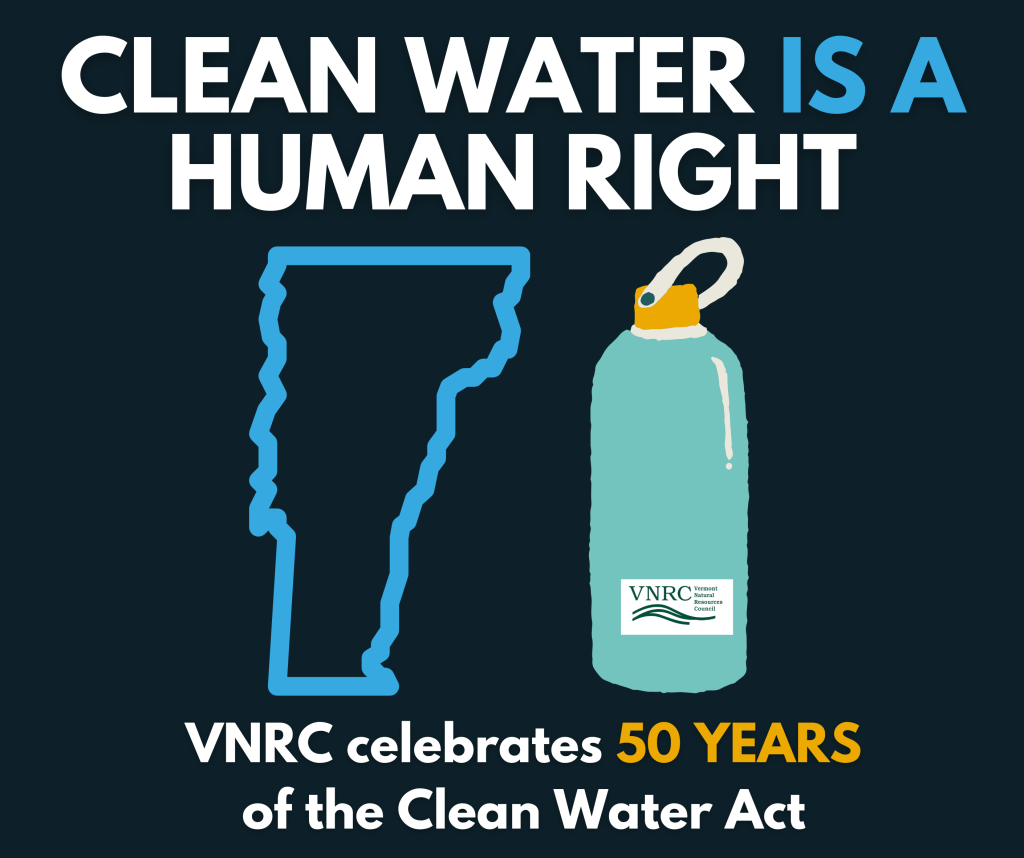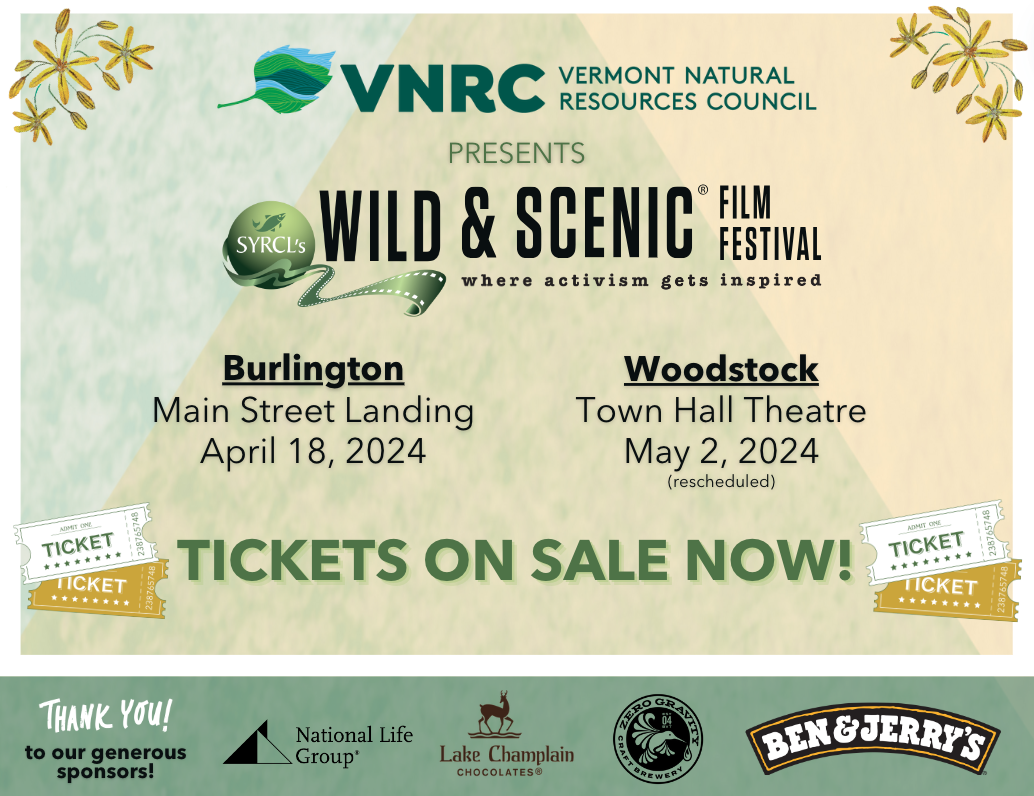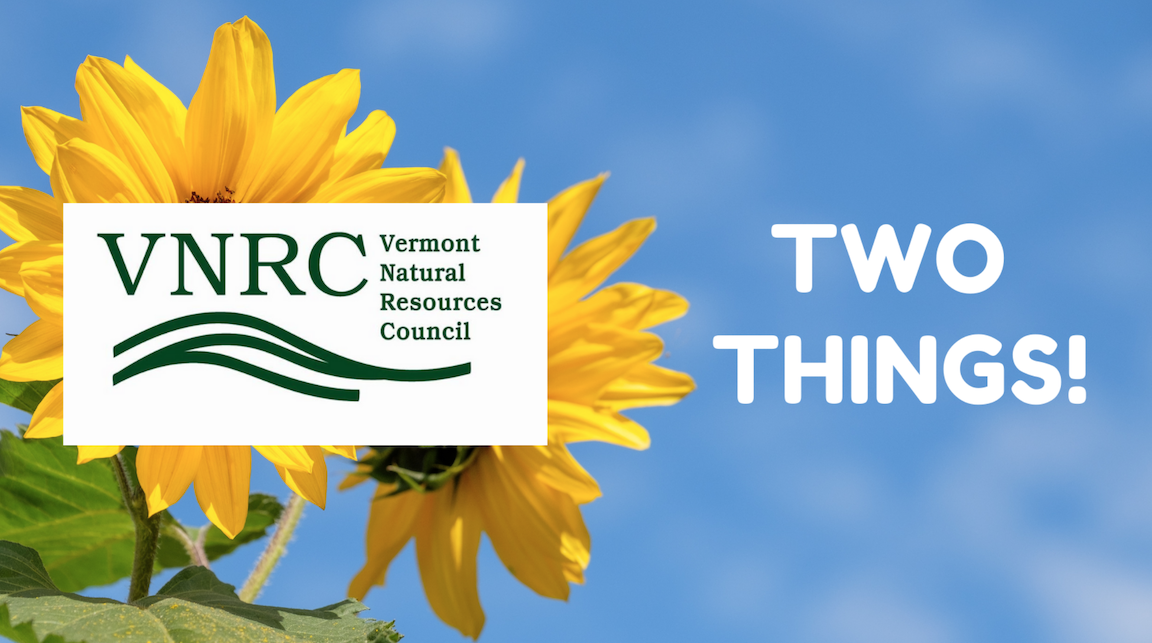This month and next, VNRC is celebrating the 50th anniversary of the Clean Water Act with a series of events, and we’re kicking it off with good news about a recent law that resulted in successful lead reduction in drinking water in Vermont schools. And, speaking of clean water, there’s a new association of wetland science in town.
Stay informed, stay connected. Two things! (Okay, so this issue has three things. But it’s in the name of clean water!)
Clean Water is a Human Right: Celebrating 50 Years of the Clean Water Act

This October marks the 50th Anniversary of the Clean Water Act, landmark legislation that has formed the bedrock of our nation’s water protection policy, and has guided subsequent clean water legislation in the half-century following its passage. VNRC is marking this occasion with a series of events and opportunities to commemorate the Clean Water Act as it reaches this milestone.
The first event we’re co-hosting with The Essex Experience and Explore Essex. This Friday, September 30th @ 5:15 & 7:15pm you’re invited to the T-Rex Lounge in Essex, for a screening of the film No Other Lake (and a panel discussion afterwards featuring VNRC’s Restoration Ecologist, Karina Dailey), about the ongoing efforts to protect Lake Champlain. Space is limited, so please RSVP here.
And, we’d love to hear from you! Do you have a memorable experience on one of Vermont’s many lakes, rivers, ponds, or streams — or just wish to share your appreciation for our waters? Please share it here.
If you’d like to help commemorate VNRC’s clean water work, anyone who donates $50 (or more) for the Clean Water Act’s 50th Anniversary, will receive a commemorative tote bag!
Officials Say Program Reducing Lead in Vermont Schools’ Drinking Water is a Success
VNRC was part of a multi-stakeholder effort in 2019 to address the problem of lead contamination in Vermont schools, resulting in a law requiring testing for lead contamination in drinking water in all Vermont schools and childcare facilities. The law set a standard for acceptable lead levels (4 parts per billion) that was more protective than the federal EPA, and required remediation of any lead contamination found at or above that level. Importantly, the Legislature also allocated funding to ensure the initial testing and remediation happened quickly and consistently across the state. Lead sponsor and champion of the bill, Senator Brian Campion of Bennington, said: “It’s great to see the successful implementation of this law; no child should be drinking lead-contaminated water. The Vermont legislature must continue the work of ensuring safe drinking water for all Vermonters.”
According to an article in VTDigger published late last week:
“Almost all Vermont schools and child care programs have addressed lead in their drinking water systems thanks to a state program created and funded by a 2019 law, state officials announced this week. As a result, students’ exposure to lead has plummeted. Act 66 required schools and child care facilities to test drinking water systems for contamination, including all taps used for drinking or cooking. Schools had to replace fixtures or pipes to reduce lead levels when tests identified concentrations above the state’s “action level” of 4 parts per billion. According to a progress report released this month, 98% of schools have completed these replacements, prompting state officials to declare the program a success. As of February 2022, the majority of taps tested had lead concentrations of less than 1 part per billion. “
Introducing the Vermont Association of Wetland Science (VAWS)
The Vermont Association of Wetlands Science (VAWS) is a new association comprised of a group of professionals working in or with the wetland science field, whose work is to “foster understanding and collaboration across multidisciplinary professions by providing wetland training, education, and networking for members and the general public, encouraging the use of science-based wetland management and policy, promoting wetland research and the protection and restoration of wetlands and associated aquatic resources, and responding to future wetland challenges and opportunities in the State.”
Wetland restoration is a crucial pillar in our work to protect Vermont’s water. Functional wetlands provide habitat, help remove nutrients from water, control flooding, slow water speeds and erosion, and provide beautiful recreational resources in communities. That’s why VNRC proudly supports the Vermont Association of Wetland Scientists.
Read more about the inaugural VAWS workshop at Otter Creek, here…
Thank you for supporting VNRC’s continued efforts to ensure clean water is a human right. We couldn’t do this work without you.





